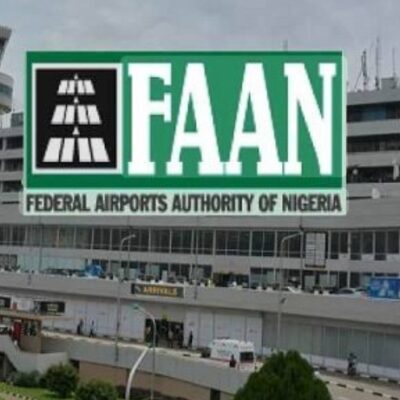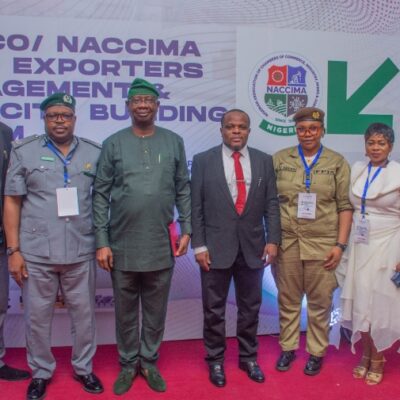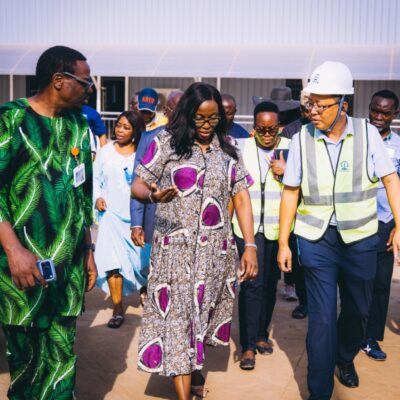BY OLAPEJU OLUBI
Nigeria has the potential to develop world-class transport systems that can power its economic transformation if it embraces innovation, long-term planning and collaboration between public and private sectors, experts said at the 2025 Transport Infrastructure Summit held in Lagos.
They amplified their position at the summit with the theme “Nigeria’s Transport Infrastructure: Innovation for a Sustainable Future,”.
In her remarks, the Convener and Chief Executive Officer of JustAlive Communications Limited, Mrs. Pearl Ngwama, said transport remains the heartbeat of economic growth and must be treated as a national development priority.
She stressed that advanced nations owe their economic prosperity to well-integrated multimodal systems that seamlessly connect road, rail, air, and sea transport.
“We only have to look around the world to see how advanced nations are built on multimodal transport systems. These systems facilitate trade, improve productivity, reduce costs, and drive innovation,” she said.
Ngwama explained that Nigeria’s strategic location and vast economic diversity offered a rare opportunity to build similar interconnected systems that could link farms, factories, ports, and airports in a unified logistics chain.
She highlighted that the country’s maritime trade rose to ₦130.75 trillion in 2024, marking a 91 percent increase over the previous year, while the aviation sector contributed ₦215.6 billion to GDP and the rail system recorded significant growth in passenger and freight movement.
“These numbers tell us we have momentum and potential, but also work to do,” she added.
According to her, transport infrastructure functions as the bloodstream of the economy, when it flows freely, every sector thrives, but when it is obstructed, growth becomes stunted.
She called for stronger collaboration among policymakers, investors, and operators to drive sustainable innovations and eliminate short-term fixes that have historically weakened the sector.
“Our ambition must be to move beyond quick fixes and stop-gap solutions. We must plan, finance, and execute systems built to last and adapt as technology evolves,” she said.
Ngwama expressed optimism that under President Bola Ahmed Tinubu’s Renewed Hope Agenda, Nigeria can build the kind of infrastructure that transforms trade and mobility across West and Central Africa.
She noted that transport systems not only move goods and people but also serve as a foundation for innovation, inclusion, and prosperity.
Linking the “Japa Syndrome” to poor infrastructure, Ngwama lamented that Nigeria’s brightest minds often migrate abroad due to the absence of systems that enable productivity and growth.

“Our young people leave in search of better prospects abroad because we have not created enabling systems at home. If we build world-class infrastructure that supports jobs and innovation, our talents will stay and thrive here,” she said.
She added that sustainable transport development goes beyond laying asphalt and constructing rail tracks — it requires vision, consistency, and a structure that supports local value creation.
“If transport infrastructure remains underdeveloped, every other sector — agriculture, mining, manufacturing, banking, health, and education — will struggle,” she said.
“We must plan, finance, and execute transport systems that are sustainable, resilient, and built to last.”
In his remarks, the Managing Director of Primero Transport Services and Chairman of the 2025 Transport Infrastructure Summit, Mr. Fola Tinubu, called for a shift from outdated models to modern, technology-driven systems. He noted that sustainable mobility and smart innovation are essential for Nigeria to meet the demands of its growing economy.
“Transportation is not just about moving people or goods; it is about connecting lives, driving trade, and fueling development,” he said.
Tinubu explained that the future of transport lies in embracing digital and clean-energy solutions that can make operations more efficient and environmentally responsible.
“Electric buses, smart ticketing, intelligent traffic management, and cleaner energy solutions are changing transport systems globally. We have the talent and creativity to do the same in Nigeria — what we need is collaboration,” he said.
He emphasised that no single company or government institution can tackle the country’s transport challenges alone. “It takes partnership, policy support, and a shared vision to build a truly integrated transport system,” Tinubu added.
He commended the organisers, JustAlive Communications Limited, for providing a credible platform that encourages dialogue and collaboration among stakeholders.
He further disclosed that the summit’s resolutions would serve as a roadmap for creating a sustainable transport framework that promotes innovation, inclusion, and efficiency.
Delivering the keynote lecture titled “The Future of Transportation in Nigeria: Trends, Challenges, Opportunities and the Way Forward,” Professor Bamidele Badejo, Chair of the Lagos State Government Professorial Chair Endowment on Transport Studies, underscored the need for urgent integration of all transport modes — road, rail, air, and water — to unlock Nigeria’s full potential.
“Transportation is life, nurtures life, and keeps life going. Without it, everything becomes stunted and deficient in reaching its full potential,” he said.
Badejo described Nigeria’s transport reality as paradoxical: a nation with immense opportunity constrained by weak planning and poor infrastructure.
He lamented that over 90 percent of passengers and freight still rely on road transport, a situation that leads to constant congestion, high logistics costs, and environmental degradation.
“This dominance comes at a heavy price — bad roads, constant congestion, environmental degradation, and high logistics costs that cripple manufacturing and trade,” he said.
He urged the government to shift from road-centric planning to multimodal integration, explaining that such a transition would improve efficiency, reduce emissions, and support economic diversification.
“Developing an integrated multimodal transportation system is crucial for Nigeria’s sustainable national development. It will improve efficiency, reduce costs, and promote environmental sustainability,” he said.
Badejo noted that transportation should be viewed as a derived demand — one that responds directly to population growth, trade activity, and industrial expansion.
He called for a data-driven approach to planning, policy consistency, and stronger institutional coordination.
He also criticised the proliferation of transport agencies with overlapping roles, which he said creates inefficiency and waste.
“Our industry is still dominated by those qualified by experience rather than by knowledge,” he said, stressing the need for professional capacity development and a disciplined workforce.
Bciraden identified energy instability, poor maintenance culture, and lack of policy continuity as major obstacles holding back progress.
However, he maintained that Nigeria can leapfrog older technologies by embracing smart mobility, green energy solutions, and data-driven logistics.
He cited the success of Nigeria’s mobile technology revolution as proof that the country can achieve similar breakthroughs in transport if it commits to innovation and collaboration.
“The future will not just happen; we must build it deliberately,” Badejo concluded.
“A national multimodal transport framework is essential to ensuring connectivity, innovation, and resilience.”
The 2025 Transport Infrastructure Summit ended with a shared conviction that Nigeria’s economic renaissance depends on how efficiently it can connect its people, industries, and resources.
As the participants agreed, the future of transport in Nigeria is not a matter of possibility but of political will, smart planning, and sustained investment.
Olapeju is a journalist and aviation reporter.





